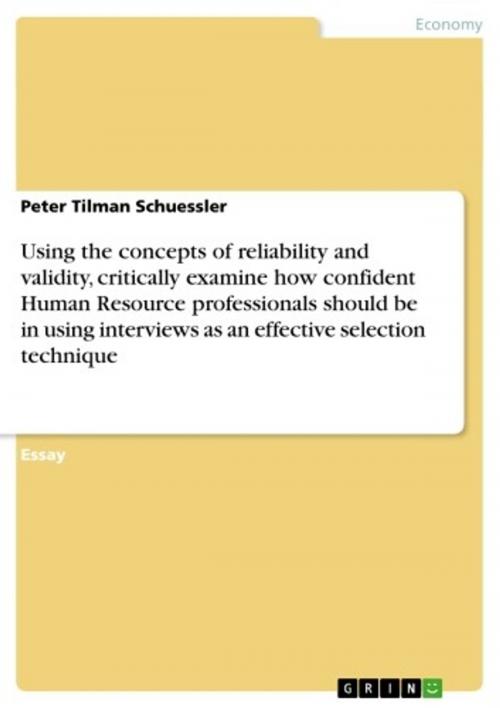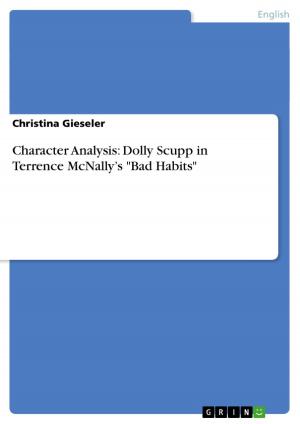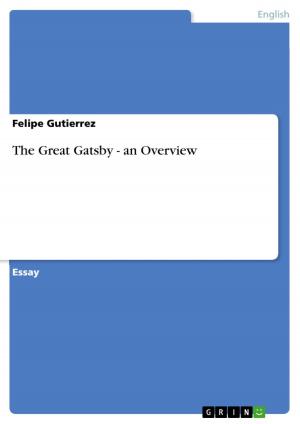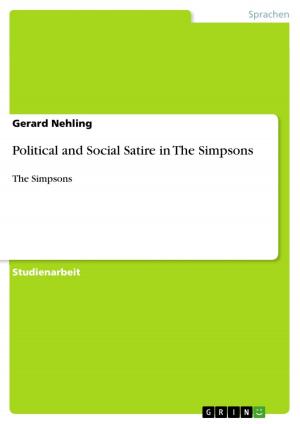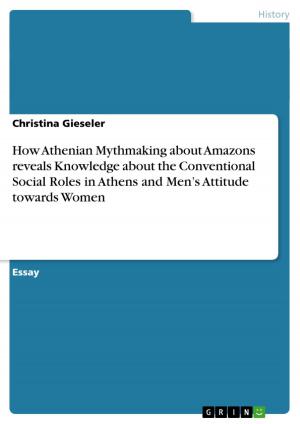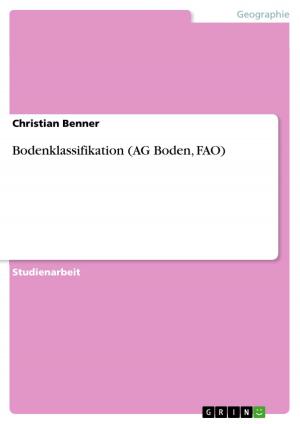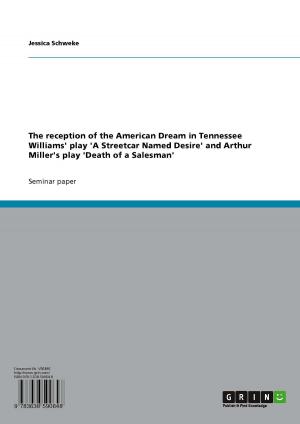Using the concepts of reliability and validity, critically examine how confident Human Resource professionals should be in using interviews as an effective selection technique
Business & Finance, Human Resources & Personnel Management| Author: | Peter Tilman Schuessler | ISBN: | 9783638157506 |
| Publisher: | GRIN Publishing | Publication: | December 4, 2002 |
| Imprint: | GRIN Publishing | Language: | English |
| Author: | Peter Tilman Schuessler |
| ISBN: | 9783638157506 |
| Publisher: | GRIN Publishing |
| Publication: | December 4, 2002 |
| Imprint: | GRIN Publishing |
| Language: | English |
Essay from the year 2002 in the subject Business economics - Personnel and Organisation, grade: 15 of 20, University of St Andrews (Management Department), course: Human Resource management, 23 entries in the bibliography, language: English, abstract: Using the concepts of reliability and validity, critically examine how confident Human Resource professionals should be in using interviews as an effective selection technique. Interviews are the most common selection technique for recruiting. Notwithstanding, this method has been frequently criticised. It is the task of this essay to evaluate how valid and reliable they are. Therefore, firstly validity and reliability have to be defined to form a basis to start with. Secondly, different types of interviews, beginning with the traditional type, will be presented and analysed. Thirdly, attempts to standardise and improve the interview in terms of reliability and validity will be critically examined. Finally a short outlook will be given, to show that not everything can be related to be reliable and valid. This text will analyse only selection interviews as the topic refers mainly to these. Furthermore it will only deal with personal interviews of employees, which excludes, for example, telephone screening1. Every selection method has weaknesses and therefore it will become clear that interviews are not absolutely valid and reliable, but nevertheless to fill certain vacant positions they will be still irreplaceable. Reliability and Validity are the two key characteristics that interviews have to have to be a suitable method for selection. They measure if the chosen methods provide consistent results and if they adequately measure the characteristic they are looking at2. 'Reliability means that the selection methods, tests and ensuing results are consistent and do not vary with time, place or different subjects'3. Or as Cowling puts it: 'Reliability is a measure of the consistency with which a predictor continues to predict performance with the same degree of success'4. That means that, for instance, two interviews at a different time and place, with different interviewers and questions but under otherwise same conditions and with the same applicants will bring the same result; namely the best candidate should still be the best and the interviewees who failed should still fail5. It is also possible to maintain the conditions, the applicants and the structure but to change the other parameters of the assessment.
Essay from the year 2002 in the subject Business economics - Personnel and Organisation, grade: 15 of 20, University of St Andrews (Management Department), course: Human Resource management, 23 entries in the bibliography, language: English, abstract: Using the concepts of reliability and validity, critically examine how confident Human Resource professionals should be in using interviews as an effective selection technique. Interviews are the most common selection technique for recruiting. Notwithstanding, this method has been frequently criticised. It is the task of this essay to evaluate how valid and reliable they are. Therefore, firstly validity and reliability have to be defined to form a basis to start with. Secondly, different types of interviews, beginning with the traditional type, will be presented and analysed. Thirdly, attempts to standardise and improve the interview in terms of reliability and validity will be critically examined. Finally a short outlook will be given, to show that not everything can be related to be reliable and valid. This text will analyse only selection interviews as the topic refers mainly to these. Furthermore it will only deal with personal interviews of employees, which excludes, for example, telephone screening1. Every selection method has weaknesses and therefore it will become clear that interviews are not absolutely valid and reliable, but nevertheless to fill certain vacant positions they will be still irreplaceable. Reliability and Validity are the two key characteristics that interviews have to have to be a suitable method for selection. They measure if the chosen methods provide consistent results and if they adequately measure the characteristic they are looking at2. 'Reliability means that the selection methods, tests and ensuing results are consistent and do not vary with time, place or different subjects'3. Or as Cowling puts it: 'Reliability is a measure of the consistency with which a predictor continues to predict performance with the same degree of success'4. That means that, for instance, two interviews at a different time and place, with different interviewers and questions but under otherwise same conditions and with the same applicants will bring the same result; namely the best candidate should still be the best and the interviewees who failed should still fail5. It is also possible to maintain the conditions, the applicants and the structure but to change the other parameters of the assessment.
